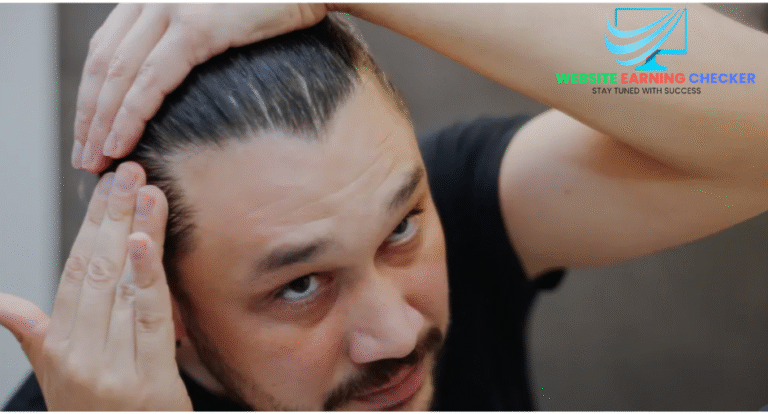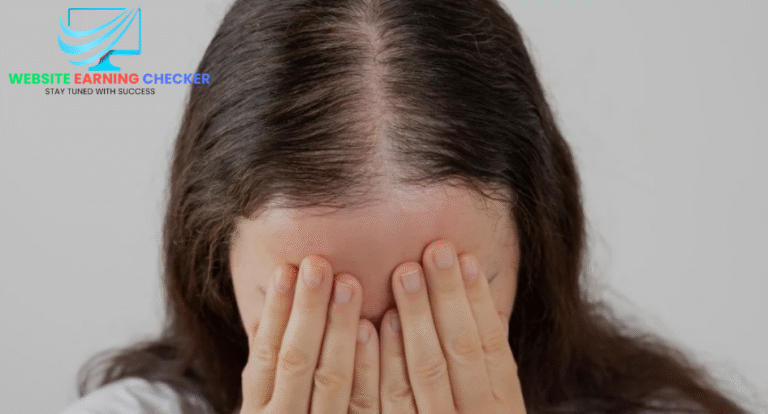
Hair loss doesn’t always result from genetics or aging—many people unknowingly damage their hair every single day through common daily habits. While it’s normal to shed 50 to 100 hairs per day, consistent or excessive hair fall can be a sign of lifestyle-related triggers. Identifying these culprits early is key to reversing damage and restoring healthy growth.
Here’s a comprehensive guide to the top everyday habits that cause hair fall and how to change them before it’s too late.
1. Overwashing or Using Harsh Shampoos
Daily washing, especially with shampoos containing sulfates, parabens, and alcohol, can strip the scalp of its natural oils, leaving it dry and irritated. This weakens the hair shaft and leads to breakage.
Solution: Wash your hair 2–3 times per week using a sulfate-free, mild shampoo, and always follow with a nourishing conditioner.
2. Excessive Heat Styling
Blow dryers, straighteners, and curling irons operate at high temperatures that damage the hair cuticle, leading to dryness and split ends. Continuous use weakens hair strands and accelerates breakage.
Solution: Limit heat styling to once or twice per week. Use a heat protectant spray every time and allow your hair to air dry whenever possible.
3. Tightly Pulled Hairstyles
Ponytails, buns, braids, and extensions may look stylish, but when worn too tight, they cause traction alopecia—a condition caused by constant pulling on hair roots.
Solution: Alternate hairstyles regularly, opt for loose styles, and avoid wearing tight ties or clips for prolonged periods.
4. Poor Diet and Nutrient Deficiencies
Your hair reflects your overall health. Diets low in protein, iron, vitamin D, zinc, and biotin can result in thin, brittle, or shedding hair.
Solution: Eat a balanced, protein-rich diet with leafy greens, eggs, nuts, seeds, and lean meats. Consider supplements if deficiencies are confirmed by a doctor.
5. Stress and Lack of Sleep
Chronic stress triggers telogen effluvium, a condition where hair follicles prematurely enter the shedding phase. Similarly, poor sleep interferes with hormonal balance, impacting hair growth.
Solution: Prioritize 7–8 hours of quality sleep per night. Engage in stress-reducing activities like meditation, yoga, or regular physical activity.
6. Skipping Scalp Care
Ignoring scalp health leads to clogged follicles, dandruff, and poor circulation—all of which contribute to hair fall. An unhealthy scalp creates a poor environment for hair to thrive.
Solution: Exfoliate your scalp once a week using a gentle scalp scrub or a DIY mix of sugar and coconut oil. Massage the scalp to boost blood flow.
7. Using Chemical Treatments Too Often
Frequent coloring, perming, relaxing, or bleaching can damage the hair cuticle, weaken the shaft, and cause chemical burns on the scalp—leading to long-term hair thinning.
Solution: Limit chemical treatments to every 6–8 weeks and always seek professional application. Use deep conditioning masks post-treatment to restore strength.
8. Not Drinking Enough Water
Dehydration leads to dry, brittle hair and an irritated scalp. Your body prioritizes hydration for vital organs first—leaving your hair to suffer when water intake is insufficient.
Solution: Drink at least 8 glasses (2 liters) of water daily. Add fruits and vegetables with high water content like cucumbers, watermelon, and oranges to your meals.
9. Towel-Drying Hair Aggressively
Rubbing your wet hair with a towel creates friction, which can cause hair shafts to break and increase tangles. Wet hair is more fragile and prone to damage.
Solution: Gently squeeze out moisture using a microfiber towel or an old cotton T-shirt. Avoid harsh rubbing, and detangle with a wide-toothed comb.
10. Ignoring Underlying Medical Conditions
Hair loss can be a symptom of thyroid disorders, PCOS, anemia, or autoimmune diseases. Ignoring these signs and self-treating with over-the-counter products can worsen the situation.
Solution: Consult a doctor or trichologist if you notice sudden, excessive hair loss, bald patches, or thinning along the hairline. Early diagnosis leads to effective treatment.
Bonus Tip: The Role of Hormonal Imbalance in Hair Loss
Hormones control the hair growth cycle. Imbalances due to birth control, menopause, or pregnancy can disrupt this cycle and lead to significant shedding.
Solution: Track your cycle and hormone levels with the help of a healthcare provider. Natural remedies like flaxseed, ashwagandha, and vitamin B-complex may support hormonal balance.
Healthy Hair Starts With Smart Habits
Hair care isn’t just about external products—it’s a holistic routine involving lifestyle, nutrition, hydration, and scalp care. By identifying and correcting harmful habits, you can drastically reduce hair fall and support thicker, healthier hair growth.






